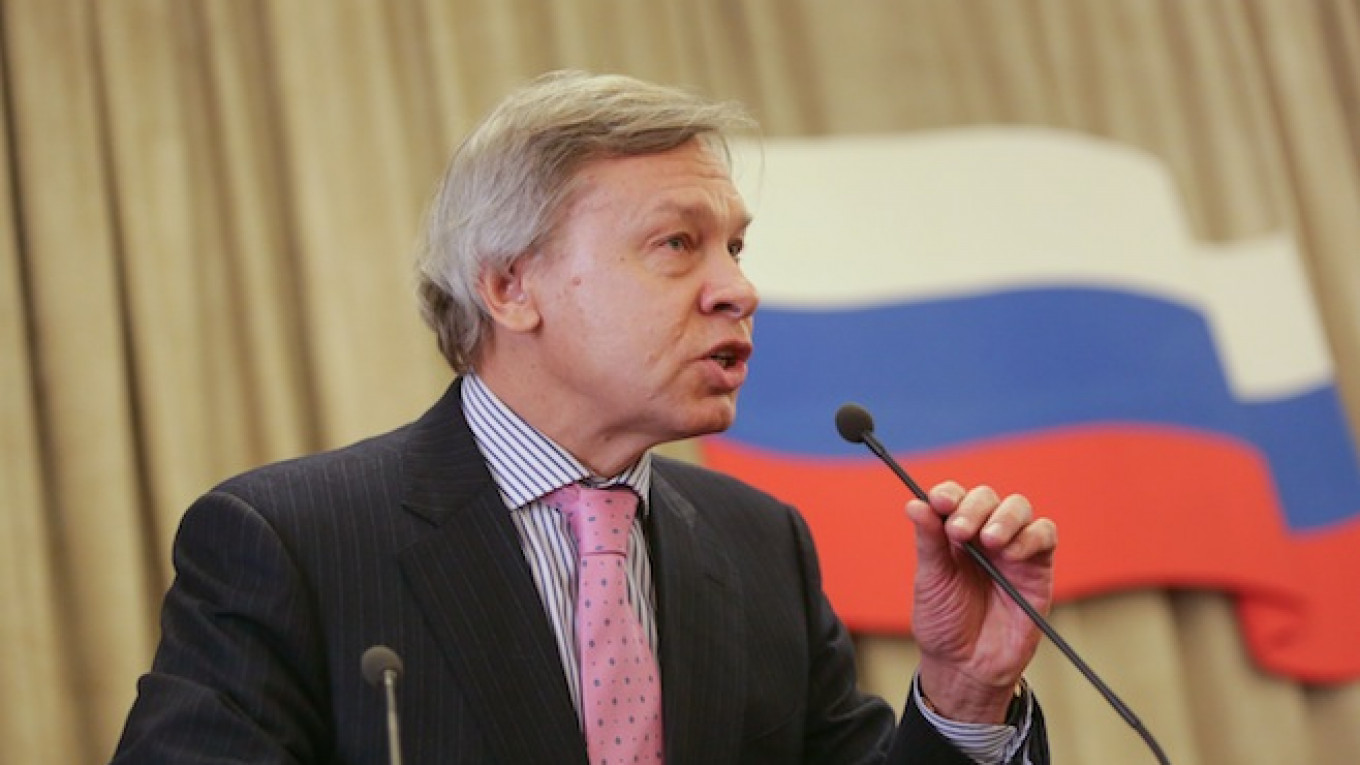A senior Russian lawmaker on Tuesday proposed blocking the Russian bank account of British public-service broadcaster the BBC in retaliation for a reported freeze on the account of a Russian state media outlet in Britain.
“As for the arrest of the accounts of [state news agency] Rossiya Segodnya … why not, say, apply the same measures to the BBC in Moscow?” said duma deputy Alexei Pushkov, who chairs the parliament's committee on international affairs, news agency RIA Novosti reported.
Russia's Foreign Ministry said Monday that London-based Barclays bank had frozen Rossiya Segodnya's British account. The ministry said the action was likely tied to British sanctions on Dmitry Kiselyov, Rossiya Segodnya's firebrand CEO and a vocal supporter of Russia's annexation of Crimea from Ukraine last year.
A Barclays representative said the bank did not comment on private accounts when contacted by The Moscow Times Monday.
Pushkov said any criticism of Rossiya Segodnya was baseless. “They accuse [state news agency] Rossiya Segodnya of propaganda. But I assure you that if you read through … material broadcast and published by the BBC, there's a huge amount of propagandistic elements and things that are contrary to reality,” he said.
Rossiya Segodnya was formed in 2013 and tasked by President Vladimir Putin with providing information to foreign audiences “on Russian state policy and Russian life and society.” It receives direct funding from the Russian government.
Kiselyov, the agency's chief, is fond of anti-Western diatribes in his weekly news television show. He reminded his audience last year that Russia could turn the United States into “radioactive ash.”
The BBC is the world's oldest national broadcaster, founded in 1922. Funded by a special levy on British television owners, the organization has a separate corporate structure from the British government.
A Message from The Moscow Times:
Dear readers,
We are facing unprecedented challenges. Russia's Prosecutor General's Office has designated The Moscow Times as an "undesirable" organization, criminalizing our work and putting our staff at risk of prosecution. This follows our earlier unjust labeling as a "foreign agent."
These actions are direct attempts to silence independent journalism in Russia. The authorities claim our work "discredits the decisions of the Russian leadership." We see things differently: we strive to provide accurate, unbiased reporting on Russia.
We, the journalists of The Moscow Times, refuse to be silenced. But to continue our work, we need your help.
Your support, no matter how small, makes a world of difference. If you can, please support us monthly starting from just $2. It's quick to set up, and every contribution makes a significant impact.
By supporting The Moscow Times, you're defending open, independent journalism in the face of repression. Thank you for standing with us.
Remind me later.






